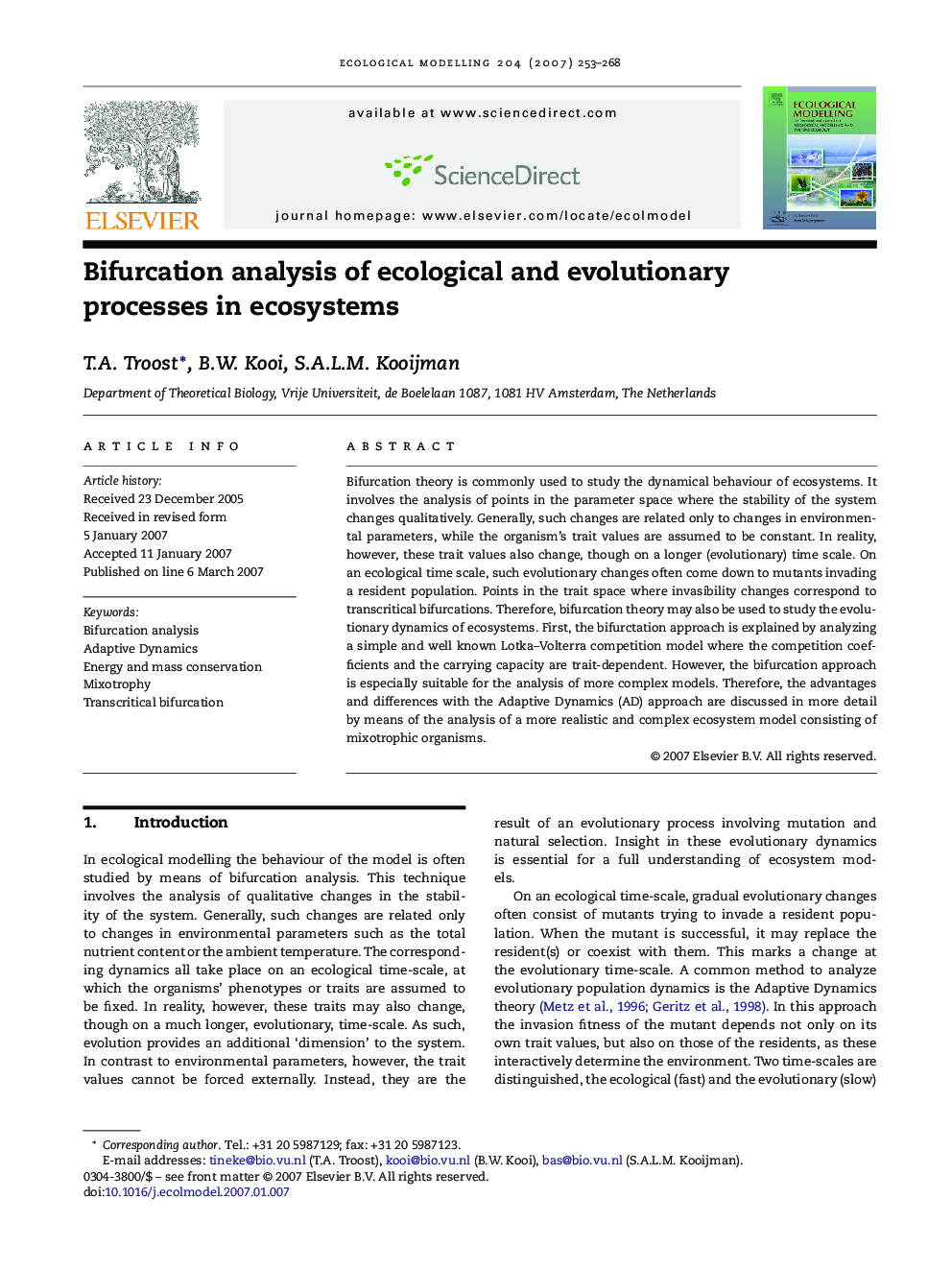| کد مقاله | کد نشریه | سال انتشار | مقاله انگلیسی | نسخه تمام متن |
|---|---|---|---|---|
| 4378824 | 1617549 | 2007 | 16 صفحه PDF | دانلود رایگان |

Bifurcation theory is commonly used to study the dynamical behaviour of ecosystems. It involves the analysis of points in the parameter space where the stability of the system changes qualitatively. Generally, such changes are related only to changes in environmental parameters, while the organism’s trait values are assumed to be constant. In reality, however, these trait values also change, though on a longer (evolutionary) time scale. On an ecological time scale, such evolutionary changes often come down to mutants invading a resident population. Points in the trait space where invasibility changes correspond to transcritical bifurcations. Therefore, bifurcation theory may also be used to study the evolutionary dynamics of ecosystems. First, the bifurctation approach is explained by analyzing a simple and well known Lotka–Volterra competition model where the competition coefficients and the carrying capacity are trait-dependent. However, the bifurcation approach is especially suitable for the analysis of more complex models. Therefore, the advantages and differences with the Adaptive Dynamics (AD) approach are discussed in more detail by means of the analysis of a more realistic and complex ecosystem model consisting of mixotrophic organisms.
Journal: Ecological Modelling - Volume 204, Issues 1–2, 24 May 2007, Pages 253–268